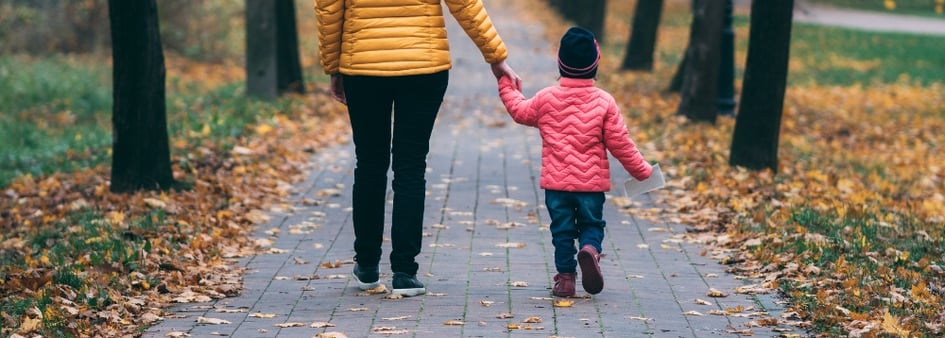Look for the helpers
Rev. Erin Hurley Robinson, chaplain | Mar 26, 2020
 The spread of COVID-19 and the way it impacts our communities has highlighted for many of us how uncertain the future is. It may even have some of us feeling some level of fear. Fear is a normal human emotion, and I believe what makes the emotion of fear feel “good” or “bad” isn’t the fear itself but circumstances, how we respond, and how we allow it to speak into our lives. When we watch a scary movie or go on a rollercoaster, we do it because there is something exhilarating about fear. But when fear is connected to real experiences and worries, it feels different.
The spread of COVID-19 and the way it impacts our communities has highlighted for many of us how uncertain the future is. It may even have some of us feeling some level of fear. Fear is a normal human emotion, and I believe what makes the emotion of fear feel “good” or “bad” isn’t the fear itself but circumstances, how we respond, and how we allow it to speak into our lives. When we watch a scary movie or go on a rollercoaster, we do it because there is something exhilarating about fear. But when fear is connected to real experiences and worries, it feels different.
In dialectical behavioral therapy (DBT), clients learn to determine whether their emotions “fit the facts” or, in other words, are appropriate to the situation. In DBT, fear fits the facts when there is a threat to your own or a loved one’s body, well-being, health, or property. According to that definition, fear certainly fits the facts in the face of COVID-19. In this case, the question isn’t whether it makes sense. The more salient question is, “What do we do with this fear?”
For me, this is where faith comes into play. The Bible is filled with stories of uncertainty, suffering, loss, and grief. People are separated from their families, lose their homelands, and become falsely imprisoned. But this hard stuff is never the end. Those imprisoned learn to experience God in the midst of their isolation. Those who lose their homelands are led to new places and communities. Those separated from their families eventually find reconciliation. Even the most foundational story of the Christian faith–the birth, ministry, death, and resurrection of Jesus Christ–is a story of a broken, hurting, fearful world nonetheless remembered, loved, and redeemed by the God of the universe. Pretty incredible!
There is another story in which I find hope, too. In times like these, I always think of this quote by Mr. Rogers: “When I was a boy and I would see scary things in the news, my mother would say to me, 'Look for the helpers. You will always find people who are helping.' To this day, especially in times of disaster, I remember my mother’s words and I am always comforted by realizing that there are still so many helpers–so many caring people in this world.”
Every disaster in history has shown there are always helpers, and COVID-19 is no exception. God is our ultimate Helper, as the Bible reminds us, but we are also surrounded by human helpers, people who become the very hands and feet of the Holy One as they care for each other in difficult times. Over the past few days, I’ve been amazed at the helpers I see around me. Families, residents, and staff pull together to find creative ways to connect, prayer, and support while also maintaining physical distance to protect one another.
In addition to turning to our Divine Helper when processing fear, worries, or needs in the face of COVID-19, I encourage you to look for the helpers. Because they are there. For me, they are a testament to the resilience of the human spirit, and, more importantly, to the presence of the Divine among us.